“Notice that everything is constantly changing, and yet, it all happens in this ever-present Here and Now. This timeless immediacy can’t be pinned down, nor can it be avoided.” -Joan Tollifson
“We could say that waking up is about seeing through illusion, discerning the difference between what is real and what is imagination.” Continue Joan Tollifson’s compelling exploration of the Here and Now in Part 3 of this seven part series The Simplicity of What Is. If you missed them, read Part 1 and Part 2 of this series.
Right now, simply listen to the sounds that are occurring. Traffic sounds, honking horn, bird cheeping, lawn mower, snow blower, rain falling, wind, rustling leaves, dog barking, vacuum cleaner, children’s voices, boom box, siren, train whistle, whatever it is. Listen to the sounds as pure sound, in the same way you might listen to music. If there is no sound at all where you are, listen to the silence. Feel the breathing, the sensations of the body, the heart beating, the rushes of energy, the tightness in the chest, whatever is felt. Feel all of this as pure sensation, without labels or judgments, without resistance, without trying to correct or improve or enhance it in any way. See all the colors and shapes and movements around you in the same way you might enjoy an abstract painting.
Notice that everything is constantly changing, and yet, it all happens in this ever-present Here and Now. This timeless immediacy can’t be pinned down, nor can it be avoided.
What is the whole thing?
Notice what happens when this question is asked. Does the thinking mind instantly kick in looking for the answer? Does thought begin searching the spiritual (or scientific, or psychological) files? “This is all Consciousness,” we might think. Or, “This is pure awareness,” or “This is brain activity,” or “This is my living room,” or “This is text on a web site,” or “This is Intelligence Energy vibrating into different patterns,” or “This is a dream,” or “This is the phenomenal manifestation and I am pure neumonom.”
Can it be seen right now that these are all thoughts? They are concepts, ideas, explanations, words, labels, beliefs. They may have their usefulness, and they may be relatively more or less accurate as pointers or maps, but notice right now that they are all words. They are not the actuality (the suchness) of ever-changing sounds, sensations, shapes and colors. They are descriptions or labels (as are all the words I just used). The word “awareness” is not awareness. Any idea of awareness or presence can be doubted or argued. But the actuality of awareness or presence is beyond doubt or belief. It needs no proof. The word “awareness” seems to make “awareness” into a separate thing, something other than sounds and colors. But the actuality of the present moment isn’t really divided up into “awareness” and “content.” It is one seamless immediacy, one whole happening. There is nothing beyond it or outside of it. It is undivided, uncontained, unbound.
Can all words, labels, concepts, ideas, and beliefs be allowed to fall away (not forever and ever, but right now)? If they are let go, then what remains?
Is the thinking mind looking for something that remains (an experience, a particular sensation, the right conceptual understanding, the absence of something, or whatever it might be)? Can that seeking activity be seen through and allowed to drop away? Can there be a simple resting in what actually remains — this that is utterly inconceivable and yet totally obvious and impossible to avoid? Seeing, hearing, awaring, breathing — simply this. Not the words, but the actuality. (And if the mind is now trying to banish words and thoughts in order to achieve some imagined non-conceptual purity, can that effort also be seen for what it is? Nothing needs to be banished, not even this effort! It’s all one indivisible flowing whole — this ever-changing appearance that always happens Here and Now).
Every moment is utterly new. Don’t cling to the words. They’re never quite right. Language is inherently dualistic. It requires subjects and objects, it reifies and divides, but in actuality, where are the boundary lines? Where does “inside” turn into “outside”? You can think of a conceptual answer, but looking directly with awareness, can you actually find such a place? Can you see that this boundary is purely conceptual, that it’s not actually found in direct experience? Don’t take this on belief, but right now, if you close your eyes and pay careful attention, can you actually find the place where “inside” of you ends and “outside” of you begins? Is the apparent border between “you” and “everything else” really there in your actual experience, or is it actually nothing more than an idea, a mental image, a river of ever-changing sensations, a story appearing in awareness? Can you find any limit to present awareness? You can think of a limit, but can you find it experientially right now?
*****
What is being pointed to on this web site is not something you can formulate and take hold of and possess. Zen, Advaita, Dzogchen, Taoism, meditative inquiry, the power of now, presence-awareness, radical non-duality — many names have been given to this aliveness...
The danger in names is that they so easily solidify, codify, and deaden into dogma. Next thing we know, we have priests, scriptures, lineages, doctrines, holy wars, blogs – right ways and wrong ways.
You may consider yourself a free-thinking, anti-authoritarian type, but this tendency toward dogmatism, fundamentalism, and authoritarianism can take subtler and subtler forms. It’s easier to see it “out there” than it is to see it in oneself. Faced with uncertainty and insecurity, we want answers and reassurance. It’s easy to slide into believing something, and then into identifying with those beliefs, and then into defending them to the death (literally or metaphorically). Belief is always shadowed by doubt. Let go of everything that can be doubted, and see what remains. What is beyond doubt takes no effort to maintain.
The ability to think in highly complex and abstract ways is both our greatest gift and our greatest source of suffering. Reactions and behaviors that make perfect sense in the wild often become useless or destructive when they get carried over into the psychological realm. We react to an insulting remark in the same way we react to an attacking tiger, or we search for enlightenment “out there” in the same way we search for food and shelter, and we end up with anxiety, depression, insomnia, and global warfare. We could say that waking up is about seeing through illusion, discerning the difference between what is real and what is imagination. Awakening doesn’t mean never thinking again or throwing out all the conceptual maps, but it does mean being able to see (in the present moment) the difference between the map and the territory, and this seeing gets ever more subtle and refined.
Thinking is not the enemy. In practical matters, thinking makes sense. It’s a wonderful tool. But much, maybe most, of our thinking has nothing to do with practical matters. Instead, it’s a kind of habitual spinning of our wheels, chasing mental phantoms, battling with ghosts, obsessing over dreams. This kind of thinking never really works or satisfies us in the way we want it to. If you pay careful attention to it, you’ll begin to notice how painful it is, and yet also how compelling. It’s very much like an addiction. In fact, we could say that this kind of thinking is our root addiction. You may also notice that all of these obsessive thoughts center around the fictional “me” in some way or other: evaluating “me,” judging “me,” trying to make “me” (or various groups with which I identify) happy, safe, powerful or enlightened. Waking up is not about bringing the story of me to a satisfying conclusion. It’s about seeing through the story. It’s about recognizing that the story appears and disappears within the boundless field of awareness. The story is ephemeral, insubstantial, intermittent, fleeting. Awakening doesn’t mean you forget your name or your life history, or that you lose all sense of being a particular individual. It simply means recognizing that all of that is a momentary appearance in awareness, a kind of dream-like play.
In the upcoming posts of this series, Joan Tollifson continues her exploration of the ephemeral and fleeting “me” that “appears and disappears with the boundless field of awareness.” Stay tuned for Part 4.
We are honored to publish this guest post series authored by (& copyright of) Joan Tollifson with her permission. The text content of this series (without all the images here) was previously published (as a single post) on Joan’s website, titled: The Simplicity of What Is.
See Joan’s brief BIO, that is in lieu of her teacher page on Stillness Speaks, which will be added shortly … and as is typical of our teacher pages, it will provide a comprehensive view about Joan’s background, and work. She is the author of four books with a fifth one in the works.
Images: (all edited and logo added) 1) Apocalyptic, by photovision, 2) Autumn Leaves, by moritz320, 3) Love Horizon, by ph-niks, 4) Sky, by viganhajdari, 5) Man on the Street, by SaraVaccari, 6) Smoke Girl. All images are CC0 1.0 Public Domain from Pixabay.com.
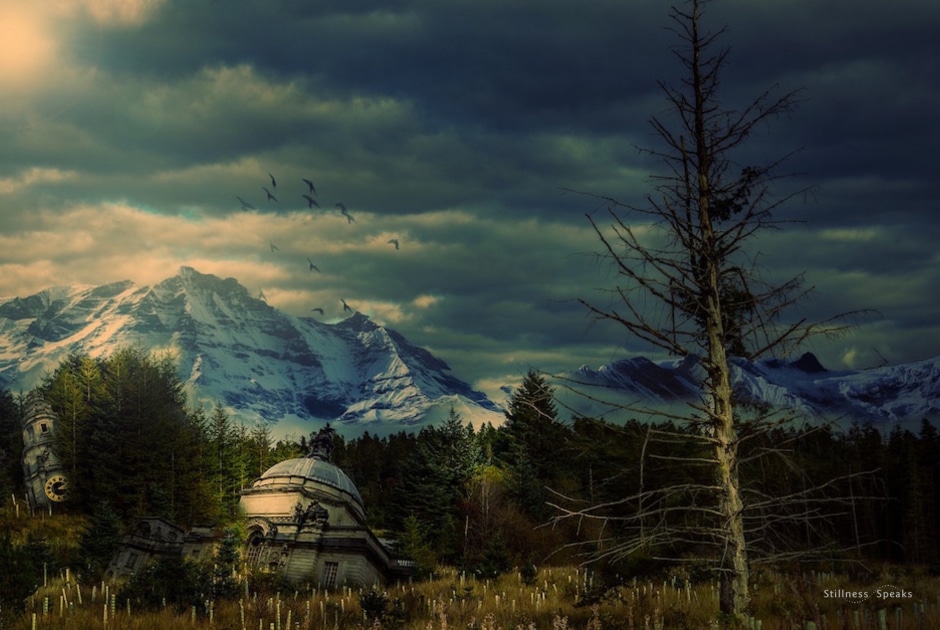




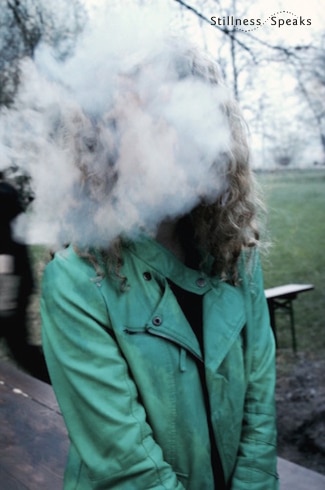


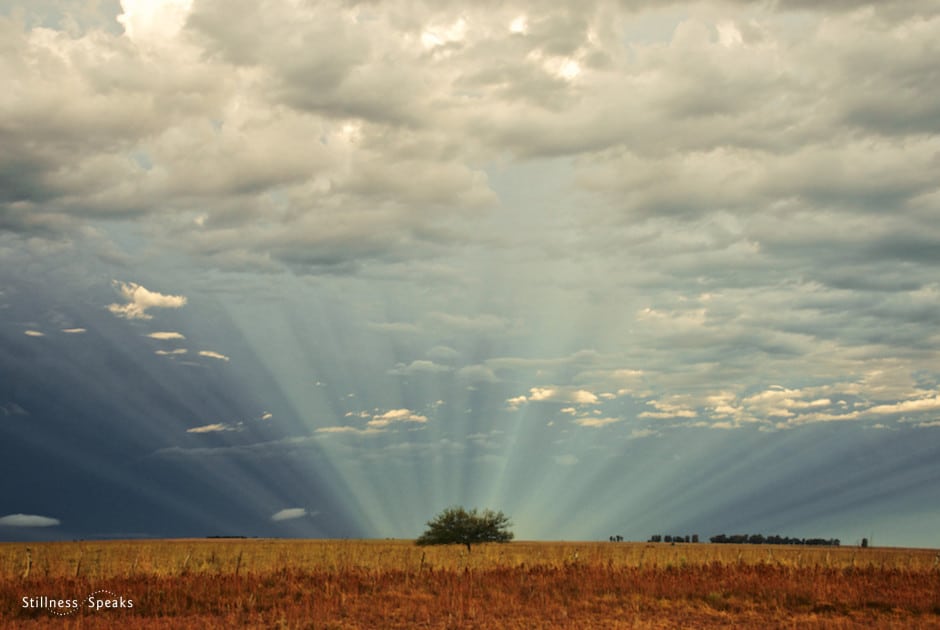


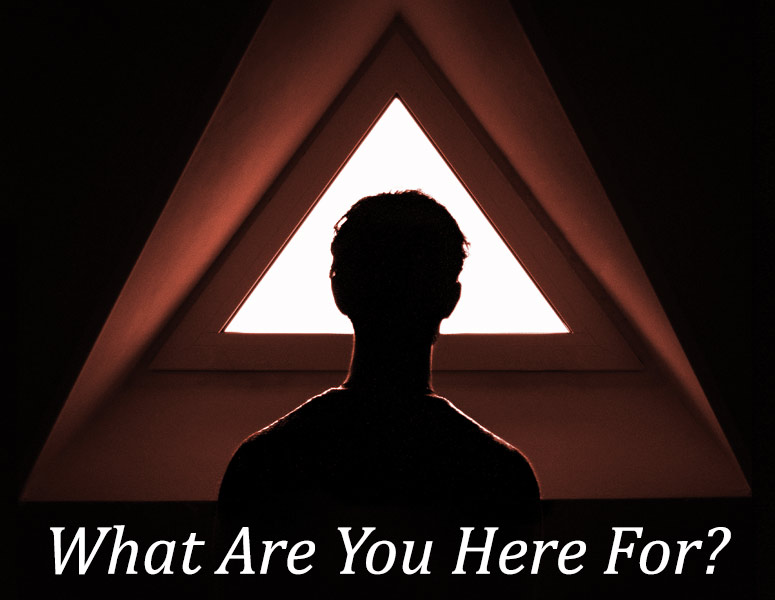
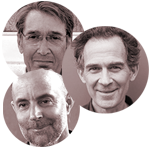
And once I was able to be one with a place where beliefs could not follow. No words. No maps. Where the eternal infinite mirror of all-present awareness and I could not tell where the mirror stopped and I began.
The wave and the particle are One
Separation is an illusion
The infinite Black mirror of All (the unkown).
Is the Source of Illumination